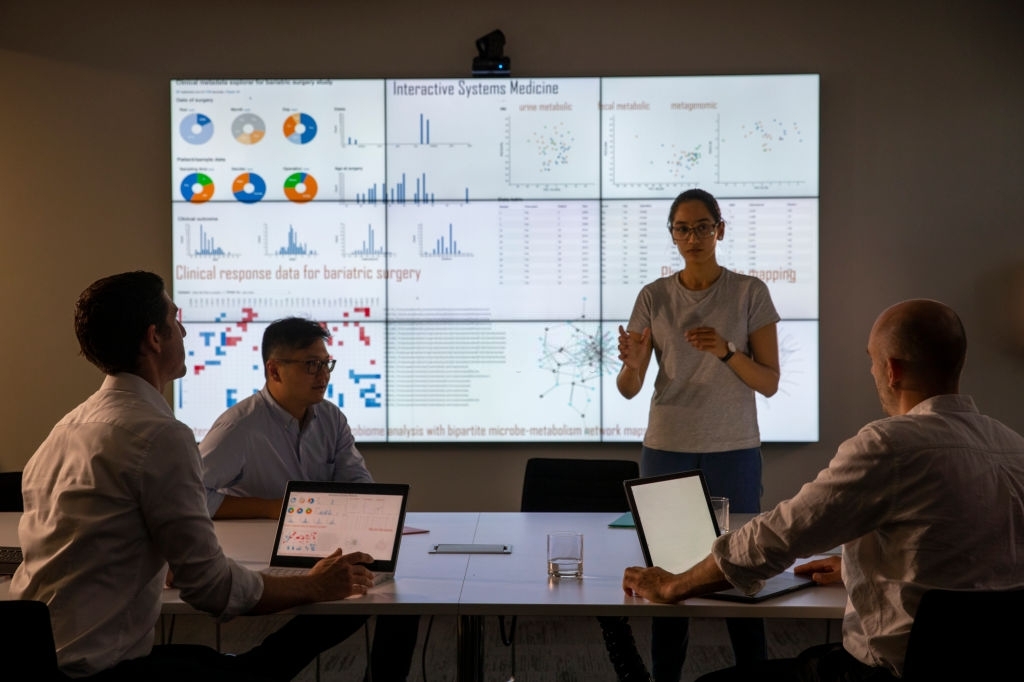The increasing use of the internet is generating data at an unparalleled pace. As a result, we can see a notable rise in the demand for professionals who can crack the data aka data scientists. But even in data science, there are more than 12+ different career opportunities. Data Science is like an ocean that has numerous categories of work and work roles.

The driving force behind writing this article is giving you a thorough understanding of different job roles in the field of data science.
1) Data Engineer
Data engineers tend to find different trends in data sets and develop algorithms to make the raw and unstructured data more useful for data scientists. Data engineers are required to have a huge set of technical skills i.e having a good grasp of programming languages and SQL database design.
Oftentimes data engineers also build algorithms to help give easier access to raw data.
2) Decision-Maker
Every organization needs a decision-maker who understands the art and science of data-driven decision-making.
Decision-making skills have to be in place before any organization can get value out of data. A decision-maker is responsible for identifying decisions worth making with data and framing them. You need to have strong analytical and soft skills to get this role.
3) Data Analyst
Data Analysts’ work includes developing, implementing, and maintaining analytic systems. Data analysts work with project managers to figure out critical metrics and deliver actionable insights based on data to decision-makers. Just like data scientists, data analysts also conduct statistical analysis and make predictive models.
They coordinate with different departments in the organization to understand their data needs. After understanding the requirements, the analyst evaluates systems for problems, and inaccuracies, and develops and maintains the protocols for handling, processing, and cleaning data.
Related: Understanding the Concept of KNN Algorithm Using R
4) Statistician
The statistician is someone who possesses a deep understanding of the entire statistics and the related methodologies. Statisticians are responsible for creating surveys, opinion polls, and questionnaires for data collection.

A Statistician also takes part in drawing conclusions and making decisions accordingly. He/She may also be required to create reports by analyzing and interpreting data for management and different departments.
5) Data and Analytics Manager
The Data and Analytics Manager’s work is to assign duties and operations to the data science team. He leads the projects having heavy requirements of data. Also, works to design the technical processes supporting business issues.
Above all, being a manager, he is responsible for the majority of tasks and most importantly the accuracy of reports generated as those reposts will be used at various levels in the organization. The Analytics manager also takes part in the hiring and training processes for the data team.
6) Data Architect
Data Architect’s role includes integrating, centralizing, and maintaining the data sources of an organization. They have to work with the latest technologies and always stay on top of the game to stay relevant. The main work of Data Architects is to create the blueprint for the best possible management of the database both at the macro and micro level.
Besides this, data architects should have good database modelling and designing skills as they decide the storage and consumption of data within the organization.
7) Data Scientist
Let’s talk about the hottest job role in the industry. What does the job of a Data Scientist hold for you? What does a Data Scientist do?

Firstly, data scientists understand the challenges or problems business is facing. Then they use their analytical and technical skills to better understand the problem and find a solution. Finally, after hours of analysis and modelling, the data scientists would provide the organization with the best possible solution to tackle the problem.
A data scientist needs to ask the right questions, process & cleans data, and do Exploratory Data Analysis. Data scientists also build multiple machine learning models based on objectives.
8) Business Analyst
Once Data Analysts have generated the insights, those insights need to be communicated throughout the company and the work of Business Analysts is to do exactly that. They use storytelling techniques to turn them into actionable business insights. The main goal of business analysts is to facilitate potential solutions to organizational problems, but oftentimes they are also given additional responsibilities like quality assurance and management.
Even though the role is not heavily tech-focused but having a good understanding of how to apply various business processes and strategic thinking is crucial.
Conclusion:
Didn’t I tell you, there are numerous roles that you can go for in the field of data science? Depending upon your interests and skillsets, you can choose whatever you want but there is one thing that I am sure of is that no matter what role you pick up, it is going to be very challenging and fun at the same time. Another piece of advice I would give is to keep improving yourself and keep learning because this field does not care for outdated individuals.


































